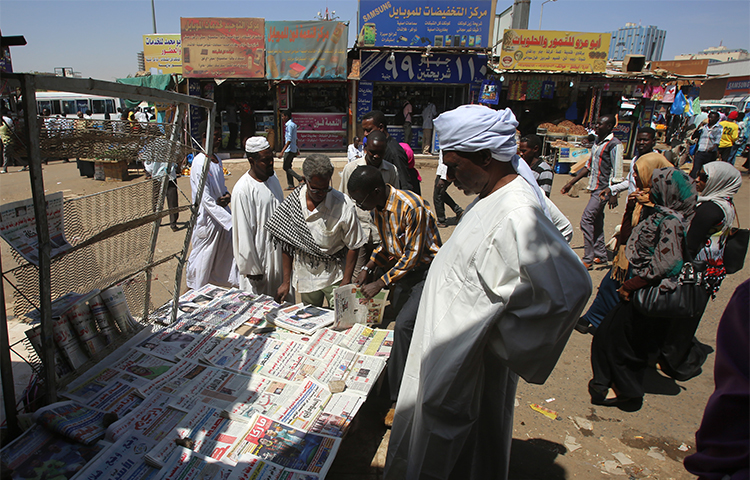On June 17, 2017, Sudan’s National Intelligence and Security Services summoned Akhir Lahza’s editor-in-chief Saleh Abdelazim to its offices in Khartoum and told him that copies of the daily Arabic-language newspaper would be confiscated indefinitely, according to the newspaper’s managing editor Luay Abdelrahman and news reports.
The security agents said editions of the paper were confiscated because it “cross[ed] red lines,” Abdelrahman told CPJ. The managing editor said he thinks the agents were referring to an opinion article published that day. The article, by columnist Abdullah al-Sheikh, criticized a speech that Bakri Saleh, Sudan’s Vice-President and Prime Minister, gave at a dinner organized by the National Press Union, according to Abdelrahman and news reports.
On June 19, 2017, the National Intelligence and Security Services told the newspaper’s managing editor that it can resume distribution but on condition that the paper end its critical coverage, Abdelrahman said. The three-day confiscation cost the newspaper about 100,000 Sudanese pounds (US$15,000) in printing costs, advertisements, and lost distribution revenue, Abdelrahman said.
Akhir Lahza has faced pressure from authorities previously. Abdelrahman said that about a year ago the security services banned the paper from running government advertisements for a year. The order has led to budget cuts at the paper, he said. The paper is also one of 14 publications that had print editions confiscated by the National Intelligence and Security Services in September 2015.
CPJ has previously documented the seizure of newspapers by Sudanese authorities, which also block websites critical of the government.
